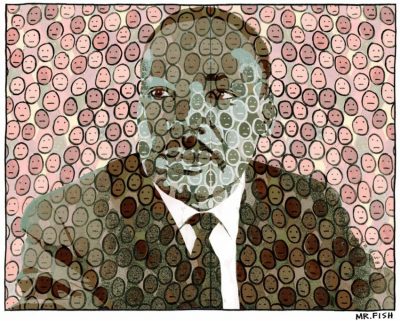Biden’s First 48 Hours Affirm U.S. ‘Greatest Purveyor of Violence’

Every year, we fight a battle on the birthday of the Rev. Dr. Martin Luther King, Jr.
On one side is the U.S. state. Forced to offer a concession to the middle-class elements of the Black civil-rights movement in the form of a birthday observance for Dr. King, the state has suspended Dr. King from the movement that produced him and reduces his legacy to banal statements made by Black misleaders like Barack Obama, which only reinforce the fantasy of U.S. exceptionalism.
On the other side is the Black resistance movement. We counter with a Dr. King in transition, one who was being influenced by the analysis and politics of the radical Black Liberation Movement that was grounded in the realities of the urban and rural working classes and poor.
In this annual ideological battle, those of us attempting to define Dr. King’s legacy highlight one of his statements because of its poignance and continued relevance: He said the United States is the “greatest purveyor of violence in the world.”
After elements of the Black Liberation Movement (the real BLM) spent years opposing the Vietnam War and U.S. imperialism in general, Dr. King finally broke with the pro-war Democrats, embraced an economic-justice program with the Poor People’s Campaign, and openly questioned the viability and ethical legitimacy of capitalism.
And in making that declaration during a Democratic Party administration, liberal Democrats, members of the civil-rights community, the press and almost every major institution in U.S. society—including most faith-based organizations—turned against Dr. King. This pivot in Dr. King’s politics likely cost him his life. When he was murdered, polls showed Dr. King was one of the most unpopular people in the country.
Liberals hated Dr. King then—as they likely would have hated him today if he was still alive—because he exposed their hypocrisy and collaboration with state violence. Today, they probably would condemn or most likely attempt to ignore Dr. King, who we can imagine would point out how in less than 48 hours after the Biden administration assumed power, 1) more U.S. troops were deployed to Syria, 2) NATO announced plans to expand its presence in Iraq, and 3) the violent U.S. campaign to undermine the right of the Venezuelan people to determine their political leadership, free from external interference, is being continued.
We speculate Dr. King would have to ask the question about how one can claim to be opposed to something one calls “fascism” in the United States, while supporting fascist political movements in Bolivia, Honduras, the right-wing opposition in Venezuela, the Saudi attack on Yemen, and the brutal occupation of Palestinians—just to name a few.
King likely would raise those questions today. But, in reality, he also supplied the answer close to 54 years ago:
“I am convinced that if we are to get on the right side of the world revolution, we as a nation must undergo a radical revolution of values. We must rapidly begin the shift from a thing-oriented society to a person-oriented society. When machines and computers, profit motives and property rights, are considered more important than people, the giant triplets of racism, extreme materialism, and militarism are incapable of being conquered.”
That radical revolution of values did not happen. The spiritual rot at the center of U.S. culture only worsened with the politics and policies of the Bush, Obama and Trump administrations. We are compelled to act because we are certain these policies will continue with the Biden administration.
The Black Alliance for Peace (BAP) is adamant we will not allow the U.S. peace and anti-imperialist movement to disarm and demobilize ever again. We are not confused. We know the legitimation crisis of neoliberal capitalism will deepen and the reliance on force and repression—including ideological repression—will increase.
We are preparing and urge you to do so, too. Peace and human rights are threats to the rulers. But they are our only means for survival, and so, we must be prepared to fight for them.
Please join us to discuss this contradiction during our next webinar, “The Challenge of Radical Black Movement Building In the Context of Crisis: An Intergenerational Discussion,” to be held January 26. Register here.
*
Note to readers: please click the share buttons above or below. Forward this article to your email lists. Crosspost on your blog site, internet forums. etc.
Featured image is by Mr. Fish/truthdig

